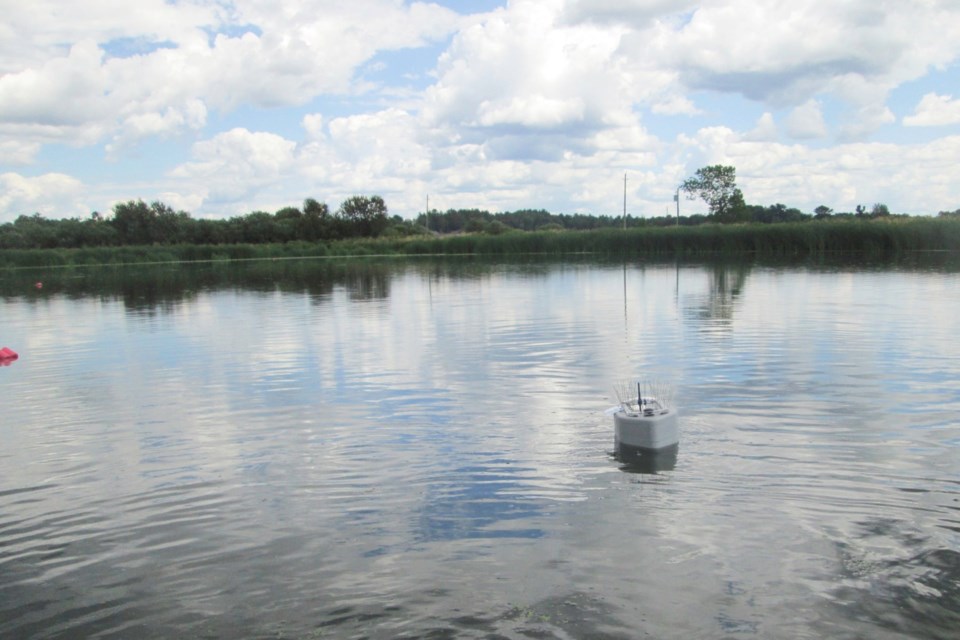Callander has begun a trial test to help reduce the depth of the sludge in the municipal sewage lagoons. The equipment was installed this week, and over the next few months the municipality will keep an eye on the progress, complete a cost benefit analysis, and determine whether a permanent installation would be beneficial to the community.
The equipment is provided by EMFluids, an Ottawa based company focused on water issues, including removing algae blooms, and extending the life of sewage lagoons. The company’s flagship product is the EMF-1000, which is now floating about one of Callander’s two lagoons.
The unit is not large—about the size of two bricks—but one unit is enough to work the lagoon. The machine uses electromagnetic signals to stimulate the water, which in turn increases the amount of oxygen in the lagoon. A small solar panel keeps everything running, and once it’s set, it’s ready to go to work.
EMFluids mention the machine “is a cleantech solution” that “results in a healthier waterbody for biological processes and for aquatic organisms and reduces greenhouse gas emissions.”
Saad Ulhaq presented to Callander’s council on May 24 on behalf of EMFLuids, and mentioned the oxygenator can “decrease methane emissions,” and “digest organic sludge.” He cited Port Lambton, a town thirty minutes south of Sarnia, as an example of the EMF-1000’s success. The machine “reduced sludge by 35%,” Ulhaq said, and there was “no algae after the treatment.”
If everything goes as planned—and Callander will find out after this trial—the municipality will consider keeping the EMF-1000 around, to be used in the warm months. Sludge becomes a problem for sewage lagoons, and every twenty years or so—the Ministry of the Environment, Conservation and Parks keeps an eye on lagoons—this sludge must be cleared out. In 2014 Callander had this done, and it cost about $2 million. The municipality took a loan to cover the work, and are still paying it back today, so putting off another sludge dredging for a few years would be appreciated.
David Briggs is a Local Journalism Initiative reporter who works out of BayToday, a publication of Village Media. The Local Journalism Initiative is funded by the Government of Canada.



